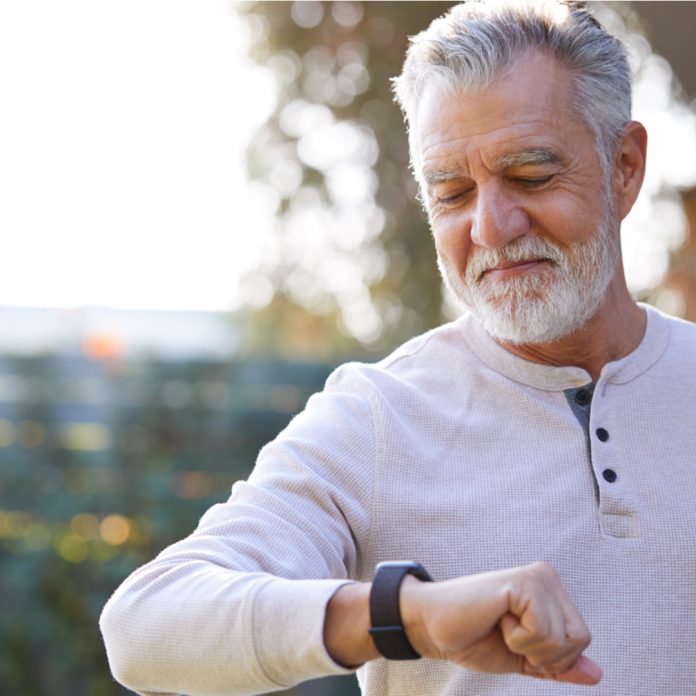Yes the world is progressing at break neck speed in every industry. Everyone is vying for a position of influence to survive or thrive whatever the case maybe. While we are positioned in this rat race, what we often fail to do is step back and ask, why are we here? This positioning is often the very reason to carry out your purpose and hardships are the conditioning needed. The strategic positions of service, influence, or leadership are not for you to run away from the world systems but to infiltrate the system. Industries like the media network, cure for diseases, technology, are progressing to make a difference to lives and living.
It all began in 1946 where a fictional cartoon character, a crime fighter, Dick Tracy began thwarting off people with his two in one wrist watch cum radio. He conceptualised the smart watch. Later in 2020, engineers at UCLA and Stanford, customized the smart watch that tracks drug levels inside the body in real time by analyzing sweat. This was the beginning of a personalised approach to medicine in the fight to reduce and control heart disease and diabetes.
Keeping track of your heart health or over all general health and metabolism be your blood sugar, your blood pressure, your sleep patterns or your oxygen saturation is something that technology and its inventions has liberated us with.
You have home devices like the blood pressure machine to record your blood pressure at the press of a button.
You have the blood sugar monitor to tell you your sugar levels with a slight prick on your finger.
You have the oxygen clip to give you your oxygen saturation levels.
You have devices and apps to monitor every step you take in the day, your pulse, the calories you have burnt, your sleep patterns and even nudge you to get up and get moving if you need to be reminded.
A list of most used wearable technology —
Fitbit: one of the first wearables to count your steps, records sleep patterns, tells you how many minutes a day you have been ‘active; and your heart rate at any given moment. It is still popular and does its basic job.
Apple watch series 7: measures your blood oxygen levels, takes an ECG reading apart from the usual steps, calorie intake, sleep patterns
Samsung galaxy 4: also does the ECG reading and offers a Bioelectrical impedance Analysis (BIA) a method of estimating body composition, which is your body fat and muscle mass.
Metabolic fitness Apps: (Ultrahuman) monitor blood sugar levels through inserting a chip into your arm and allowing the downloaded app to scan your blood sugar levels at anytime.
It is absolutely amazing!
They do all this and more but —
Can wearable devices be trusted with your heart and health?
After much research and study, here are a few views—
Professor Carol Maher: researcher in Alliance for research in Exercise, Nutrition and Activity (ARENA)
“Medical features on wearables such as Fitbits, Apple watches can be useful, but they’re a bit more in that grey area where they’re not as accurate as medical tests. That is the degree of concern, where people may use their gadget to substitute a more accurate medical test.”
Here’s an account of my personal experience with downloading an app and inserting a chip into my arm in order to monitor my blood sugar several times a day.
It allows me to find out which foods triggered my sugar to elevate it beyond the controlled level and how long it took for the spike to settle with the dose of medication. Instead of the prick three to four times a day, all I need to do is scan the chip with my phone. These multiple readings a day taught me so much, how to managing my food intake, which foods to avoid and more importantly the combination of foods to avoid.
For example: if I ate fruit, it must be accompanied with a protein to control the sugar spike, so a handful of nuts did the trick.
Sugar levels two hours after each meal should be within a range that your body can use the sugars optimally and not convert it to fat. When sugars are optimally used, the HbA1C (three month average) levels stay controlled. This HbA1C test is done through a medical test in a lab. So prof. Maher is absolutely on point with her concern that wearables, Smartphone Apps, Artificial Intelligence, can support people to make better lifestyle choices and should be worn for a period of time versus total dependency and most importantly periodic Lab testing is a must to make sure accuracy is maintained.
NOTES TO PONDER —
- As these wearables keep getting updated, and deliver more features, the great thing is that they help flag asymptomatic health issues, which you might not even be aware of.
- Another thing that these wearables and apps do provide is the calibration of your home gadget to the app, this ensures accuracy to greater levels, which is helpful to your doctor as preventive care before the disease becomes more difficult to manage.
- Ideal drugs and dosages could be tailored to an individual with more ease.
- Wearables can empower patients to better engage in self-care in the comfort of their home.
- The one-size-fits all approach to prescribed medication, based on statistical averages and their effectiveness can now be personalized by body composition and chemistry. No two human bodies are the same and its chemistry is constantly changing.
- Tracking the profile of the medication inside the body, how soon it is absorbed or eliminated continuously and non-evasively, to tailor the optimal dosage is an unmatchable feature.
While they say, “Information is power” we certainly do not want wearable technology taking over lab testing or replacing doctor consultations. It should be a convenience that holds well only within limits and support people to make better lifestyle choices.








